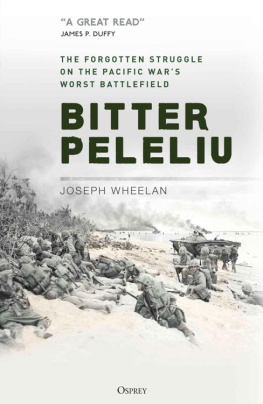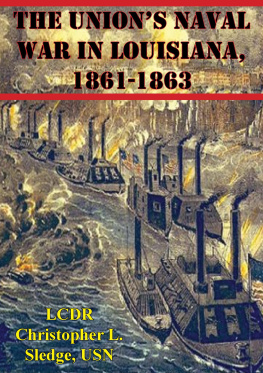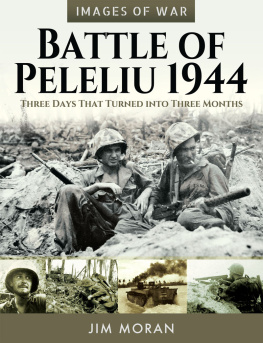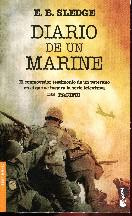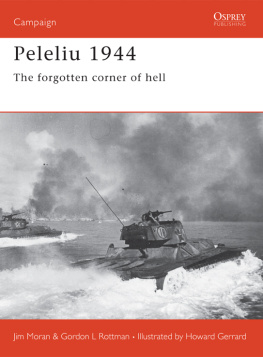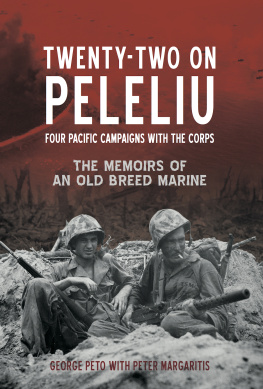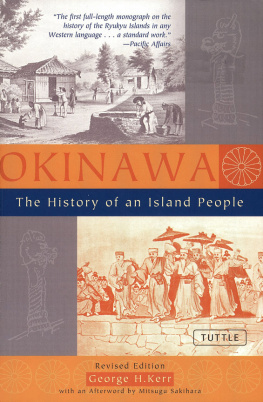E. B. Sledge - With the Old Breed: At Peleliu and Okinawa
Here you can read online E. B. Sledge - With the Old Breed: At Peleliu and Okinawa full text of the book (entire story) in english for free. Download pdf and epub, get meaning, cover and reviews about this ebook. publisher: Pressidio press, Random House Publishing Group, genre: Non-fiction. Description of the work, (preface) as well as reviews are available. Best literature library LitArk.com created for fans of good reading and offers a wide selection of genres:
Romance novel
Science fiction
Adventure
Detective
Science
History
Home and family
Prose
Art
Politics
Computer
Non-fiction
Religion
Business
Children
Humor
Choose a favorite category and find really read worthwhile books. Enjoy immersion in the world of imagination, feel the emotions of the characters or learn something new for yourself, make an fascinating discovery.

- Book:With the Old Breed: At Peleliu and Okinawa
- Author:
- Publisher:Pressidio press, Random House Publishing Group
- Genre:
- Rating:3 / 5
- Favourites:Add to favourites
- Your mark:
- 60
- 1
- 2
- 3
- 4
- 5
With the Old Breed: At Peleliu and Okinawa : summary, description and annotation
We offer to read an annotation, description, summary or preface (depends on what the author of the book "With the Old Breed: At Peleliu and Okinawa " wrote himself). If you haven't found the necessary information about the book — write in the comments, we will try to find it.
With the Old Breed: At Peleliu and Okinawa — read online for free the complete book (whole text) full work
Below is the text of the book, divided by pages. System saving the place of the last page read, allows you to conveniently read the book "With the Old Breed: At Peleliu and Okinawa " online for free, without having to search again every time where you left off. Put a bookmark, and you can go to the page where you finished reading at any time.
Font size:
Interval:
Bookmark:

In all the literature on the Second World War, there is not a more honest, realistic or moving memoir than Eugene Sledge's. This is the real deal, the real war: unvarnished, brutal, without a shred of sentimentality or false patriotism, a profound primer on what it actually was like to be in that war. It is a classic that will outlive all the armchair generals safe accounts ofnot the good warbut the worst war ever.
K EN B URNS, creator of The War
Of all the books about the ground war in the Pacific, [With the Old Breed] is the closest to a masterpiece.
The New York Review of Books
There are some brilliant memoirs of the savage battle for Okinawa, but E. B. Sledge's is by far the most haunting.
The Wall Street Journal
The best World War II memoir of an enlisted man.
Navy Times
Awarded number one Best War Story Ever Told
by Men's Journal magazine
Books published by The Random House Publishing Group are available at quantity discounts on bulk purchases for premium, educational, fund-raising, and special sales use. For details, please call 1-800-733-3000.
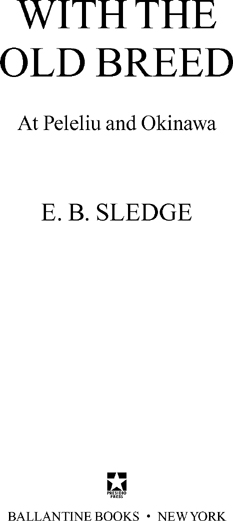
In memory of Capt. Andrew A. Haldane,
beloved company commander of K/,
and to the Old Breed
The deaths ye died I have watched beside
and the lives ye led were mine.
RUDYARD KIPLING
Rifles were high and holy things to them, and they knew five-inch broadside guns. They talked patronizingly of the war, and were concerned about rations. They were the Leathernecks, the old TimersThey were the old breed of American regular, regarding the service as home and war as an occupation; and they transmitted their temper and character and viewpoint to the high-hearted volunteer mass which filled the ranks of the Marine Brigade.
The Leathernecks in Fix Bayonets by John W. Thomason, Jr.
PART I
PART II
It was my privilege to assume command of the 3d Battalion, 5th Marines, 1st Marine Division (Reinforced) on 10 April 1944 during the final phase of the New Britain campaign. New Britain was its second combat operation.
Although we didn't know it at the time, two more campaigns lay before the battalion, Peleliu and Okinawa. Each of them would be of greater intensity and extract a greater cost than did the first two. And when the division departed New Britain for a rest camp on Pavuvu in the Russell Islands, we began comprehensive training for what was to become Operation Stalemate on Peleliu Island in the Palau Islands. That operation was to receive little publicity or recognition, but it was certainly to be one of the bloodiest and hardest fought in the Pacific war.
Among the replacements who joined us during this period was a young Marine known as Sledgehammer, more properly listed as Pfc. E. B. Sledge. He was assigned to Company K, under the command of Capt. Andrew Haldane, one of the finest company commanders in the entire Corps.
Sledgehammer has a Ph.D. now and is a professor of biology at the University of Montevallo, Montevallo, Alabama. But he has never forgotten his experiences with Company K during the fights for Peleliu and Okinawa.
Although I commanded the 3d Battalion during its training period for Peleliu, it was my fatethrough the vicissitudes of seniority, or the lack thereofto be transferred to the regimental staff before we sailed for Peleliu. That was a source of deep regret on my part.
It's customary for historical accounts to be written about military campaigns. It's not unusual for officers to write their personal narratives of such operations. But it's all too rare for an ordinary Marine infantryman to set down in print his own impressions of war. This is the man who actually closes with the enemy, who endures a plethora of privations along with pain and all too often death, who is the lowest common denominator when battle is joined.
Sledgehammer Sledge was such a Marine. In this book we see the war as he himself saw it. Anyone who has served in the ranks will find many situations analogous to his own experiences recounted accurately in the recital of fears, frustrations, and small triumphs. It's fascinating and instructive reading.
Brig. Gen. Walter S. McIlhenny,
U.S. Marine Corps Reserve (Ret.),
Avery Island, Louisiana
This book is an account of my World War II experiences in training and in combat with Company K, 3d Battalion, 5th Marine Regiment, 1st Marine Division during the Peleliu and Okinawa campaigns. It is not a history, and it is not my story alone. I have attempted, rather, to be the spokesman for my comrades, who were swept with me into the abyss of war. I hope they will approve my efforts.
I began writing this account immediately after Peleliu while we were in rest camp on Pavuvu Island. I outlined the entire story with detailed notes as soon as I returned to civilian life, and I have written down certain episodes during the years since then. Mentally, I have gone over and over the details of these events, but I haven't been able to draw them all together and write them down until now.
I have done extensive research with published and unpublished histories and documents pertaining to my division's role in the Peleliu and Okinawa campaigns. I have been amazed at the vast difference in the perception of events recounted in these narratives as contrasted to my experience on the front line.
My Pacific war experiences have haunted me, and it has been a burden to retain this story. But time heals, and the nightmares no longer wake me in a cold sweat with pounding heart and racing pulse. Now I can write this story, painful though it is to do so. In writing it I'm fulfilling an obligation I have long felt to my comrades in the 1st Marine Division, all of whom suffered so much for our country. None came out unscathed. Many gave their lives, many their health, and some their sanity. All who survived will long remember the horror they would rather forget. But they suffered and they did their duty so a sheltered homeland can enjoy the peace that was purchased at such a high cost. We owe those Marines a profound debt of gratitude.
E.B.S.
Although this is a personal account, which was originally written for my family, there have been numerous people who have helped shape it into book form for the general reader.
First I want to thank Jeanne, my wonderful wife. She typed the Peleliu portion of the manuscript from stacks of my handwritten pages, and was the first to suggest that this narrative might be of interest to others than our family. She has encouraged and aided me with ideas, advice, editing, and typing. That the lengthy original manuscript was completed after years of spare-time writing and research during graduate school and child rearing is due as much to her assistance as to my efforts.
Deepest appreciation is extended to my editor, Lt. Col. Robert W. Smith, USMC (Ret.). During his last year as editor of the Marine Corps Gazette, he became interested in seeing this complete account in book form during our work on extracts, which appeared as a three-part article, Peleliu: A Neglected Battle. His interest has been my good fortune. In addition to his vast editing skill, Bob has been an inexhaustible source of good ideas and advice. On more than one occasion he has bolstered my sagging morale when I've become weary with what is not a happy subject. His objectivity has guided me through the forest when I couldn't see the trees, and when it was painful to both of us to omit parts of the original. I am grateful for his sensitivity and impeccable professionalism.
Font size:
Interval:
Bookmark:
Similar books «With the Old Breed: At Peleliu and Okinawa »
Look at similar books to With the Old Breed: At Peleliu and Okinawa . We have selected literature similar in name and meaning in the hope of providing readers with more options to find new, interesting, not yet read works.
Discussion, reviews of the book With the Old Breed: At Peleliu and Okinawa and just readers' own opinions. Leave your comments, write what you think about the work, its meaning or the main characters. Specify what exactly you liked and what you didn't like, and why you think so.

